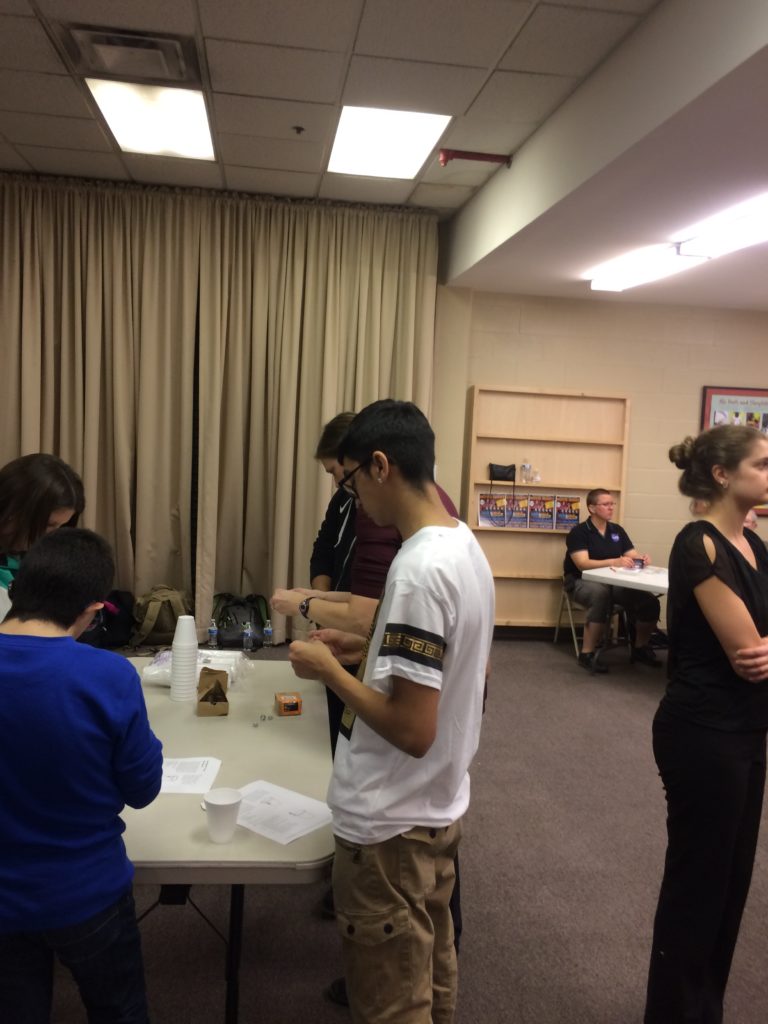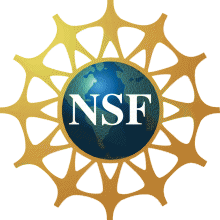To ensure a well-planned and implemented training or event, no matter if it was generated from a cold call or an established curriculum is being utilized, whether it is a small and brief class or a large conference venue, attention to detail is essential.
Checklists, spreadsheets-whatever organizational strategies work for you-can help with tracking every detail of the event from the first ideas of what will be offered to completion of event goals and objectives and on to post-event follow up. Overlooked details can spell disaster. Attention to even the smallest of details can ensure customer satisfaction and a sense of accomplishment. Examples of details are:
Materials/Resource Development
Questions to Ask:
– Is there one curriculum to follow or will there be multiple speakers with multiple topics and materials to be used?
– How will you ensure everything is completed and ready?
– What timelines do you need set to ensure all materials are completed and ready in enough time for your review, accommodation adaptations, etc?
– Will there be a need for additional or supplemental materials and/or resources to be used during training? Will these need to be developed or are they readily available?
– Do they need to be adapted for accommodations? Is there an expense involved that must be considered?
– Do you need copyright permissions or permission from an author to use the material? Resources could mean items for use during activity.
– How much time is needed to order and receive them?
– How do you plan to track what materials and resources are needed and when during a training event? How do you plan to disseminate resources during a training event?
CEU Offering
Often training for professional staff involves one or multiple Continuing Education Units (CEUs) tied to the session. The agency that oversees that particular licensure or certification maintenance and/or the entity that regulates CEU requirements will determine what they need to approve the credits attached to the training.
Some of the information you may need to collect and submit with your request for CEUs from each entity is:
- Training goals and objectives
- Program agenda
- Presenters’ vita/resume/bio
- Duration of training
- Fees for the CEUs
- Evaluations after the event
- Paperwork/application specific to that entity
Venue/Site Selection
Venue/facility/training site selection of training sites may be determined based on a number of variables. If you work in a facility that often conducts outreach and training, you may have in-house training facilities and the expectation is participants come to you. Or you may also provide training in different geographic locations where facilities may need to be determined based on a number of considerations.
Cost of facility space can be exorbitant, especially if you are using hotel space or other similar public venues. When using these types of venues, be aware that additional costs for technology support, refreshments, really almost any request will be an additional cost and can add up very quickly. If this is the choice, will you recoup the cost through registration fees? Do you have funding from another source to cover the cost?
Examples of facilities that may meet the need are public schools and universities, school district education centers, churches, recreation centers, and even outdoor venues such as parks.
Often there are other options for space that are much less costly and often will include services such as technology support. You will likely have to consider avenues for catering, equipment such as printers, etc but while that may be more labor-intensive for you, it can reduce cost immeasurably.
With each of these options, you may be able to negotiate and/or collaborate in a way that saves cost and benefits everyone involved.
Tech support and tech equipment are likely going to be essential for any kind of training venue planned. With rare exceptions, such as perhaps an outdoor, hands-on experience with young students (and even so, you may need technology to provide remote captioning or interpreting), technology will be needed.
Both cost and expertise must be considered. It does not help to have state-of-the-art equipment if you do not also have the experts to use it.
Access
Access is woven into every detail of planning. Every seasoned planner of training events knows you must think about how to ensure full access to every facet of the training offered to all participants. Communication access includes consideration of qualified interpreters and speech-to-text services, line of vision issues in every space, as well as thoughtful planning for remote services if necessary.
Access also includes physical access to the site. You must be familiar enough with the site to know if there are any physical barriers that must be addressed, both around the external vicinity of the building as well as internal barriers in hallways, bathrooms, etc.
Registration System/Participant Tracking
Both small and large venues typically require some kind of registration or sign-up system in advance in order to plan for participants. Determine what timelines need to be in place.
Questions to Ask:
– How early do you need to know who and how many are attending?
– Will you use this process to inform you of accommodation requests? Food allergies, etc?
– Will you use it to advance plan groupings of attendees or determine facility needs?
Registration for training can be as simple or sophisticated as your needs warrant. Additional functions can be included such as pre-tests, surveys, etc. Decide if you will only allow registration in advance of the event or if on-site registration on the day of training will be allowed. Think about how each option might impact the planning and day of facilitation of events.
If you are hosting a large event, you will want to think about how you will receive attendees upon arrival.
Questions to Ask:
– Will you want a registration table where everyone must check-in (this may be required for CEU purposes, for example) to receive a name tag or materials for the day?
– Will you need multiple people to assist with this process to ensure a quick and efficient process?
– What technology will be required? If registration was completed online, will you use laptops or iPads to check everyone in or track the comings and goings of attendees?
Information/Promotional Materials
Many events will require strategies for promoting the event. This is a means of encouraging potential participants to consider attending. Similar to a sales ad, it is used to elicit interest and enthusiasm for the event. Informational materials may serve to inform people of an upcoming event but also provide greater detail about the event. A “save the date” promotional “ad” can be brief and can be disseminated very early in the planning process, prior to having more detailed information.
However, informational materials may be developed to serve as both a promotional effort as well as inform the reader of event logistics, such as location, schedules, presenters, etc.
Details to Consider:
How your promotional or informational materials look will matter. Visual appeal lends to greater interest as well as helps people remember. Thought as to what you will include, such as artwork, logos, font color, and size, mapping of text-all of these details will have an impact on participant interest.
Determine how much information you want to include on an early or “upfront” piece.
Questions to Ask:
– Is it early in the planning process and do you want at this time to notify the public of the event and dates?
– Do you need to include more detailed information that you know will be critical in helping people decide if the event meets their needs?
– What information may be more appropriate to be included in the registration materials or follow-up information once people have registered?
– Is it better to disseminate basic information in the promotional materials, such as date and location, and wait for more detailed information, such as presenters, in a more detailed informational piece?
You will have to decide how much and how often you want to reach out to people. One train of thought is that people are inundated with information so a “one and done” approach is best. Others would argue that because people are so busy, sending information regularly often generates more interest and better attendance.
Consider whether it is important to include information regarding disability access, overall goals of the event, CEU information, and other more specific details in pre-event materials. For some audiences, these details will influence interest and for others, they may be of greater interest once they have arrived.
When you send follow-up information to registrants, most would agree that it is almost always better to provide too much information than not enough. For events that require long-distance travel, participants generally want as much information as possible to help with travel planning. A great way to share is to provide follow-up information to registrants. Information that is designed to be succinct, easy to read, and perhaps save as a reminder is helpful. Information may include:
- Hotel, restaurant, local transportation availability
- Recommended airport to fly in/out of
- Local urgent care and pharmacy information
- Weather expectations and clothing recommendations
- Visitor center contact information
- Conference planner contact information
Hosting Presenters/Trainers
When you are planning an event in which you are using multiple presenters who you have enlisted to participate in a learning event, it is essential to make the extra effort to ensure they are supported. Presenters are selected in a number of ways to provide information: they may compete through a conference proposal process, they are approached and selected to present and offered an honorarium or fee, or perhaps they are a salaried member of your training team.
Regardless of the circumstances, presenters play a very important role in the success of the event. Your support from beginning to end of the experience can make a huge difference in the overall positive experience for the presenter. Strategies for supporting your presenters are:
- Complete a thorough process starting at initial contact with a presenter as to what is being asked of him and what he needs in support from you.
- Follow up with written correspondence, a contract, or a memo of understanding to outline in detail precisely what he/she has agreed to do as a presenter as well as what you will do to support him in terms of technology, equipment, materials, and resources, and of course, compensation.
- Are there other ways you have agreed to be supportive?
- Will you be taking care of travel arrangements or hotel arrangements for them?
- Will you be sending them on a regular basis event information as it is being planned? Perhaps you will be sharing a presenter list so they are aware of who else will be providing training. Regular communication with presenters will be well worth the extra time and effort.
- Providing presenters with the expected timelines for anything you need from them is helpful.
- Do you need their travel itinerary by a certain date?
- Is there a deadline for receiving presentation materials?
- When will you need presentation abstracts, etc for promotional purposes?
- Will you need headshots, bios, resumes, etc early on for the application of CEUs as well as for promotional materials?
- Find out if there is anything a presenter needs in terms of physical comfort.
- A refrigerator in a hotel room for medications?
- A food allergy to be concerned about?
- Are there specific communication access needs?
- Do they prefer to meet with their interpreter in advance?
- Do they need to see the room where they will be presented in advance?
- Consider a gathering of your presenters. A pre-event dinner with everyone can lend a great deal to a sense of camaraderie and teamwork. Or a reception for presenters to recognize their contribution can be easy to plan, fairly inexpensive, and leaves presenters feeling appreciated.
- Thank yous even when as simple as a handwritten card can make a presenter feel appreciated. If funding allows, having a small gift of appreciation or a welcome package upon arrival is always nice.
Refreshments/Meal Planning
Refreshment/meal planning for participants-The saying goes “if you feed them, they will come”. No matter the event or the age of the participants, food often plays an important role in overall satisfaction. There are many benefits to providing food on site. It can help with scheduling since it will take less time for participants to eat if they do not have to leave the training site.
It also provides a level of convenience for everyone if refreshments are there and available at will rather than having to leave a venue to seek something. Think through the physical space for food set up. Large groups of people may need to get their meals in shifts or some thought into how to help people move through the space may need to happen.
Questions to Ask:
– Do you have a dining room reserved for your use?
– Do you need to use a meeting space or space just outside of a meeting room for setup? This can often determine what type of food you offer (does it need to be finger foods or can you do plates?)
– What time constraints due to schedule do you have?
– Can you afford the time needed to allow people to be served a full meal?
– Is there time for people to enjoy a buffet where time in line might be necessary?
– Or is time so limited that providing boxed meals that enable participants to “grab and go” is best?
Food costs can vary greatly depending on where you are ordering. Often if you are using a conference hotel, there will be a required amount you must spend on food and drink for your event.
This can influence your decision regarding your event location as food costs can get out of hand very quickly. If you are using a facility that allows outside food vendors, it is worth your while to shop catering services and food vendors to find what will be suitable for you in terms of both food options and related costs.
Be sure to ask what they will charge for set up and take down fees, additional fees for condiments, beverages, etc. You are strongly encouraged to get references when using caterers and other outside services to be sure they have a reputation of being on time, responsive to unexpected problems, food is hot and fresh, etc

Questions to Ask:
– Type of food provided is always a challenge. Hot food or cold food? Finger foods or soup? Perhaps no food or just snacks and drinks? Probably the biggest challenge is the need to ensure that what is offered is amenable to the majority of participants.
– Is there a protein option? A vegetarian option? Wheat versus gluten-free? Have you gathered information in advance regarding food allergies? If so, how are you accommodating them, and to what degree?
– Will there be options on the buffet selections or do you need to order special meals that are set aside? (This is great information to gather from participants during the registration process.).
If you are not going to provide alternate options for those with food allergies, it is a MUST that participants know this prior to attend an event so they can plan accordingly.
Adding to a registration process the following statement is one way to be sure you have notified participants: “Baked chicken and salad will be served during lunch for this training with no alternate options. Those with food allergies may need to plan to bring their preferred foods.”
Recognition of Sponsors/Partners
As important as your presenters are at an event, so are the people who have served the important role of supporting the event by providing funding, in-kind services or materials, or collaborating and planning with you. It takes little effort but reaps great reward when you identify ways to recognize those who have helped.
Public recognition during opening sessions by way of introduction is always well received. You can also list them in the program book or on the day’s agenda. Creating banners or signage with recognition placed in visual areas of the room is nice. If you know well enough in advance, recognition can be included in promotional materials. Logos of partners can be added to materials that are disseminated prior to as well as during the training. Showing appreciation is always good.
Word of caution: there is risk in overlooking someone when you are recognizing people which can cause offense. Be careful to include everyone.


